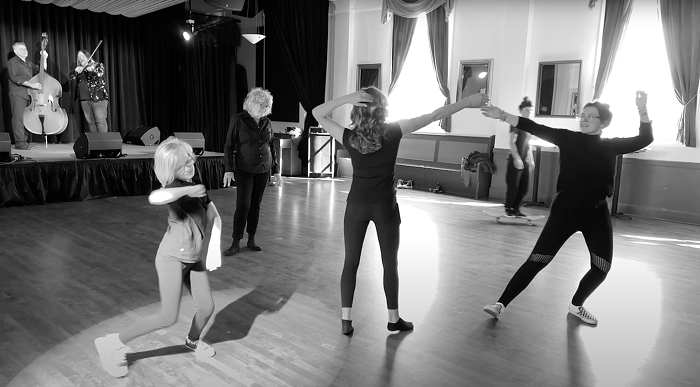DYLAN WENT ELECTRIC. Miles Davis did, too. Radiohead transformed themselves from grunge acolytes into electronic music adventurers, and Stravinsky's The Rite of Spring caused a near-riot at its Paris premiere for being too avant-garde. Music history is littered with examples of artists bending genres to explore new musical territories. Diving Lessons, the most recent full-length from Portland duo Jellyfish Brigade, continues the tradition of musicians eschewing the status quo in favor of exploring the boundaries beyond.
Diving Lessons is the latest collaboration between producer Jeffrey Acciaioli (AKA the Great Mundane) and emcee/vocalist Lucas Dix, formerly of Hives Inquiry Squad. Dix moved to Portland from the Midwest in 2008 with Gavin Soens, his Hives cohort and musical partner. Sadly, Soens succumbed to cancer in April of 2012. Shortly thereafter, Dix rearranged his musical goals.
"I wanted to make an album that reflected the feeling of driving back to Portland through the Gorge on a summer Sunday at sunset after a weekend on the mountain," Dix explains. "However, as Gavin got sicker and sicker, the album's focus unintentionally shifted a bit. I didn't know how to support a friend dying of cancer, and quite honestly, I did a pretty shitty job of it. Watching one of the strongest people I have ever met in my life, a person who had been my best friend and creative partner, slowly break down and wither away was tough. I dealt with a lot of the emotions and thoughts by writing them into the songs. The end product is an album about falling into a transient love, losing people close to you, and finding a way to be understanding of it all."
Ultimately, the album is a treatise on recognizing one's own mortality, and attempting to ride a lifetime's waves while equipped with both wisdom and wonder. While Dix's work in Hives Inquiry Squad conjured up claustrophobic basements and post-apocalyptic dystopia, Jellyfish Brigade is something else entirely. Dix describes it like this: "Jeff's intricate, electronic-heavy production, with me at times singing like I want to be in a '90s R&B group, and at other times rapping about a realization I had while sitting next to a river while staring at a mountain." It's starry-eyed and thoughtful—and Dix is only too aware of how that comes across in the current hiphop milieu.
"Groups I've been a part of have always fit into the scene a bit oddly," he says. "That Hives Inquiry Squad record we released was full of Gavin's wonky production, dense lyrics, and grandfather slang. Gavin had hair past his shoulders, a beard that reached his chest, and a metal leg. People would see us step onstage and be like, 'Who the fuck do these guys think they are?'
"Both Hives and Jellyfish don't really attract a traditional hiphop audience, which is fine by me," Dix continues. "I don't want to make traditional rap music. That doesn't mean I can't appreciate somebody who does. I can bump that stuff any day of the week. It's just that it sounds dishonest coming from me, and I want to make sure all of my music comes off as true, honest, and from the heart."



















